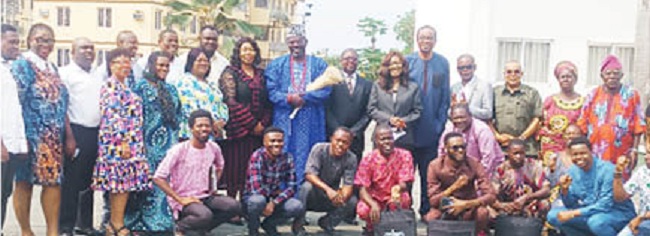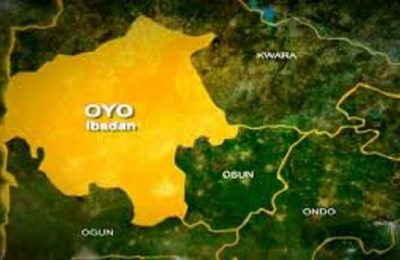
“Our oceans are under siege, and the communities that depend on them bear the brunt of pollution, displacement, and human rights abuses.” These words formed part of the opening remarks made by Dr Nnimmo Bassey at the ‘State of the Ocean Workshop’ held at the Nigerian Institute for Oceanography and Marine Research (NIOMR) on Monday in Lagos.
The workshop was organised by Health of Mother Earth Foundation (HOMEF) in collaboration with NIOMR and International Ocean Institute.

In his speech, Dr Bassey said: “Across the coastline of Nigeria, community folks are being forced from their territories, deprived of their resources and left to grapple with the consequences of laxly regulated natural resource exploitation.
“The economic forces driving this destruction prioritize profit over people, extracting resources beyond the ocean’s capacity, and leave behind a trail of ecological devastation. The infrastructure of Nigeria’s economy begin at our shorelines and extend to the deep waters where resources are extracted— and coastal communities who bear the pressures from the land and the sea remain trapped in poverty.
“We cannot ignore the countless oil well blowouts that have polluted our waters: Akaso Well 4, Atanba, Bonny Terminal, Buguma Wellhead 008, Santa Barbara, and the ongoing inferno at Ororo Oil Well 1 at Awoye, Ondo State, which has been raging for close to five years now, among others. These disasters are ecological crimes that contribute to climate instability, and a worsening scarcity of land and water, placing entire communities and livelihoods at risk.
Read Also: 17 students die, dozens injured in Zamfara school fire
“We live with the struggles of fishermen and women who set out each day with their nets and baskets, only to find empty waters—enclosed and sacrificed for industrial dredging, multinational oil companies and corporate fishing.
“A community like Aiyetoro with its history of well-organised governance and industrial strides is now a ghost of its former self, bashed and washed by unrelenting waves and left to grapple with unrelenting impacts of global warming and possibly heading for complete displacement unless we act.
“We acknowledge the plight of Makoko’s communities, whose rights to housing, food, and health have been trampled by forces that would be happy to have the people displaced so the waterfront can be grabbed by speculators. Overall, the destruction of marine biodiversity disproportionately affects fishing communities, making them the most vulnerable to environmental degradation.”
In his remarks, Professor Abiodun Sule, the Executive Director/CEO of NIOMR, who was represented at the event by Dr Patience Obatola, the Director of Research, said: “The theme of this workshop, ‘The State of the Ocean in Africa,’ could not be more timely. The oceans around Africa are facing unprecedented challenges, including rising sea levels, ocean acidification, warming temperatures, and the proliferation of dead zones. These issues are exacerbated by human activities such as exploration and exploitation of marine resources, pollution from plastics and synthetic chemicals, and IUU fishing. The consequences of these challenges are far-reaching, affecting not only marine ecosystems but also the livelihoods and well-being of coastal communities.”
He added: “The state of the ocean in Africa is a reflection of our collective actions or inactions. It is a call to action for all of us to do more, to work together, and to ensure that our ocean remain healthy and productive for generations to come.”
The NIOMR boss called for a reaffirmation of commitment “to ocean sustainability, to strengthen our partnerships, and to chart a course toward a brighter future for our ocean and our planet.”
In his remarks, Oba Ojagbohunmi Oluwambe of Aiyetoro, a frontline community facing ocean surge, said his community of over 30,000 people had largely developed independent of government assistance for decades. However, with the current crisis the community is facing, he said: “This is the only time we need government help. The ocean incursion is ravaging, and Aiyetoro is not the only community that is affected in the coastal part of Ondo State.”








